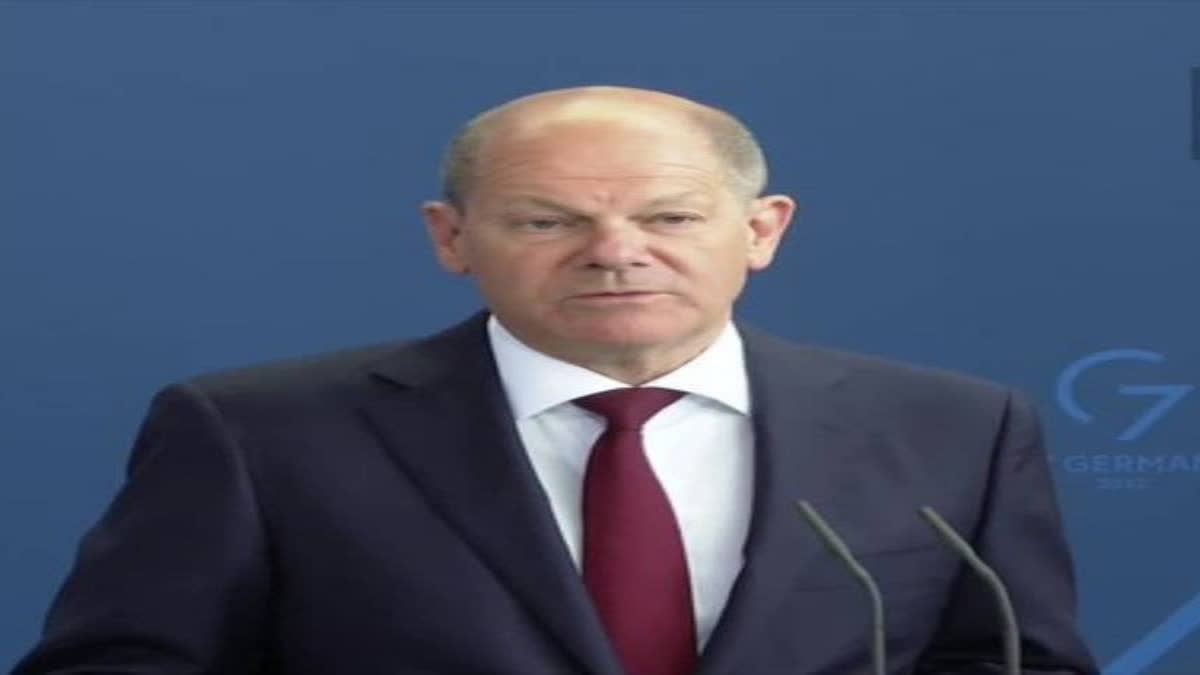New Delhi: During German Chancellor Olaf Scholz’s three-day visit to India starting Thursday, a key area of focus will be boosting India-Germany economic ties in Berlin’s bid to reduce reliance on the Chinese market.
Scholz and Prime Minister Narendra Modi will co-chair the Seventh Intergovernmental Consultations (IGC) here on Friday. The IGC is a whole-of-government framework under which ministers from both sides hold discussions in their respective areas of responsibility and report on the outcome of their deliberations to the Prime Minister and the Chancellor.
India and Germany share a Strategic Partnership since 2000. The two countries have been holding IGCs since 2011. “Both leaders will hold bilateral talks to discuss enhanced security and defence cooperation, greater opportunities for the mobility of talent, deeper economic cooperation, Green and Sustainable Development Partnership and collaboration in the area of emerging and strategic technologies,” the Ministry of External Affairs stated while announcing Scholz’s visit earlier this week.
“Both leaders will also address the 18th Asia Pacific Conference of German Business (APK 2024) being held in New Delhi on 25 October,” it stated. “The APK, a biennial event for business leaders, executives, and political representatives from Germany and the countries in the Indo-Pacific, is expected to give a further fillip to trade and investment ties between our two countries. About 650 top business leaders and CEOs from Germany, India, and other countries are expected to participate in the event.”
What is the volume of bilateral trade and investments between the two countries?
Germany was the 12th largest trading partner for India in 2023-24. In 2021-22, it was Indiaʼs 11th largest trading partner and the seventh-largest trading partner in 2020-21. India constituted about 1 per cent of Germanyʼs total foreign trade in 2023 and Germany constituted over 2.37 per cent of India’s foreign trade in 2023-24 (2.24 per cent in 2022-23 and 2.4 per cent in 2021-22). While the balance of trade has been in favour of Germany, bilateral trade has experienced continuous growth over the last few years.
According to figures provided by Destatis (Statistisches Bundesamt), the Federal Statistical Office of Germany, trade with India touched an all-time high of $33.33 billion (+5.84 per cent) with exports from India at $15.48 billion (-2.3 per cent) and imports to India from Germany at $17.85 billion (+14.2 per cent) in the calendar year 2023. India was Germanyʼs 23rd largest trading partner in 2023.
Germany is the ninth largest foreign direct investor in India with a cumulative FDI in India of $14.5 billion. From April 2000 to December 2023, German investments in India in 2023-2024 totaled $507 million. According to the Indo-German Chamber of Commerce, there are more than 2,000 German companies active in India. German investments in India have been mainly in transportation, electrical equipment, metallurgical industries, services sector (particularly insurance), chemicals, construction activity, trading and automobiles. Most major German companies including the automobile and machinery giants are present in India. India offers significant prospects for cooperation with Germany, including in the areas of infrastructure, energy, and environmental and high technology.
Indian investments in Germany have shown an increase in the last few years. Besides trading, Indian companies are setting up value chain activities in
Germany, manufacturing goods and services locally as well as engaging in research and development and innovation activities. More than 215 Indian companies are operating in Germany. Sectors such as IT, automotive, pharmaceuticals, biotech and manufacturing have received a major portion of Indian investments.
However, if reports are to go by, in a bid to reduce its reliance on China, Germany wants to further boost economic ties with India.
Why does Germany want to reduce its economic reliance on China?
Germany, the largest economy in the European Union (EU), has long benefited from its robust trade relationship with China. Over the past two decades, China has emerged as one of Germany’s top trading partners, especially in industries like automobiles, machinery, and chemicals. However, escalating trade disputes between the European Union (EU) and China, fueled by issues such as market access, intellectual property rights, subsidies, and economic coercion, are having a profound impact on Germany’s economy.
